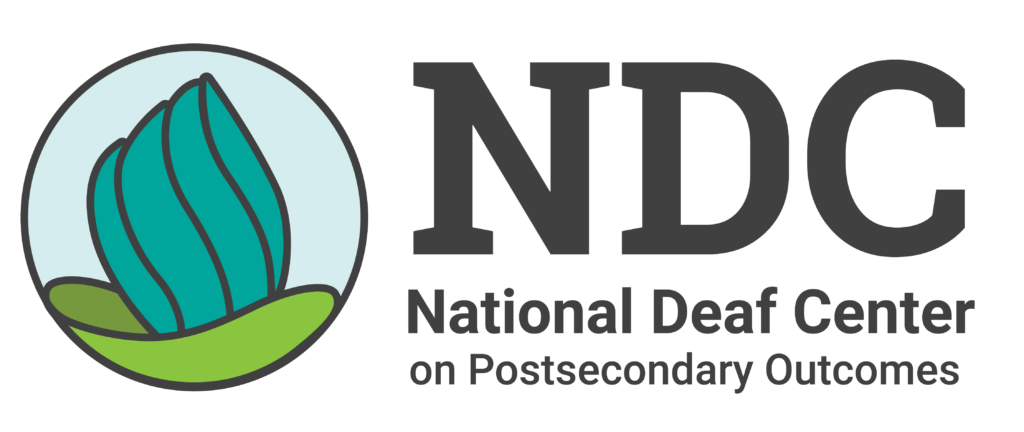
Student Resource Portal
Everything you need to succeed, all in one place.
Requesting Accommodations
Visit your institution’s disability student services (DSS) office for accommodations to access all courses, programs, and activities your campus has to offer.
Plan Your Future: A Guide to Vocational Rehabilitation For Deaf Youth
Vocational rehabilitation (VR) helps you reach your career goals. This guide shares important information to help you get the services you need to succeed.
Data Dashboard
Curious about the median income for a specific career field? Interested in a list of the most popular majors among college students? Our dashboard has all of that and more!
Why is Self-Advocacy Important?
It’s never too early—or too late—to learn how to self-advocate! Self-Advocacy skills are critical for success in postsecondary and training settings for deaf students. Students with disabilities who employ self-advocacy skills, including knowledge of themselves, knowledge of their rights, and communication and leadership skills, achieve better academic and lifetime outcomes.
Tips for Deaf Students
Plan Your Future
Resources for High School Students
Student Planning Guide to Testing and Accommodations
This step-by-step guide explains how to request and use accommodations on standardized exams to help students meet their goals after high school.
Learn from Deaf Role Models
Check out this video playlist for stories told by deaf people from a variety of backgrounds who share their experiences pursuing their dreams in a wide array of industries.
Preparing for College
Part of self-advocacy is making sure you have all the information you need when you start applying to colleges, universities or career training programs.
Not sure where to start?
Play Deafverse to discover your future.
Frequently Asked Questions
More resources coming soon!
Stay tuned for more updates!
For assistance, please fill out this form and our Help Team will get back to you as soon as possible.
Contact Us

Who are we?
We are a technical assistance and dissemination center funded by the U.S. Department of Education’s Office of Special Education Programs (OSEP), focused on sharing information, networks, and strategies to improve continuing education and training for deaf people.





